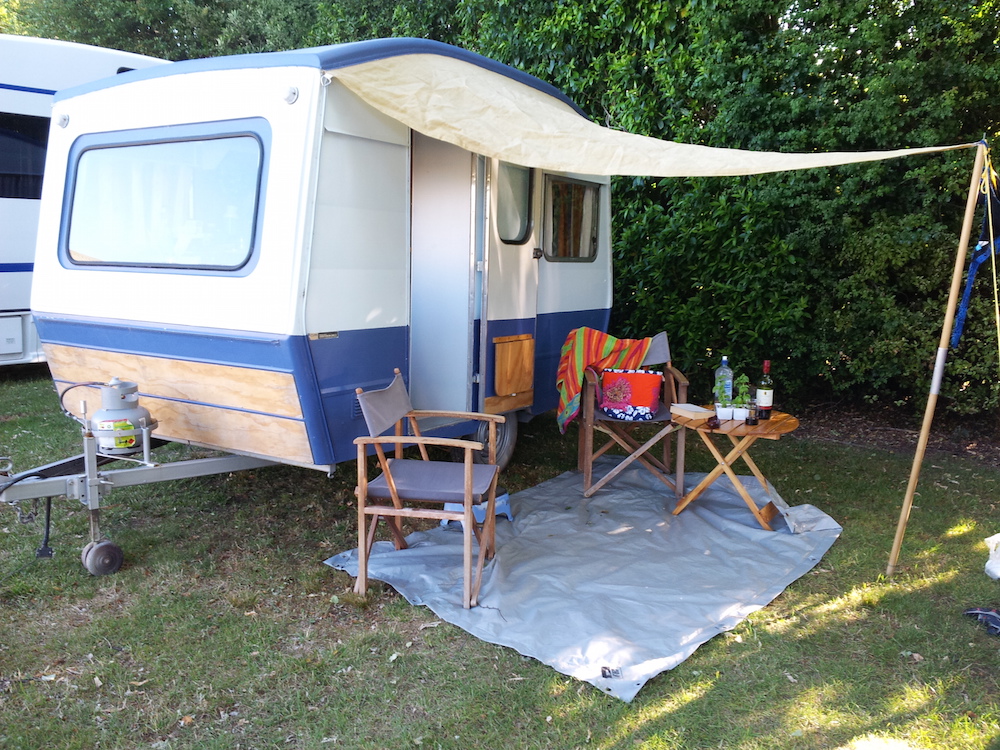1. There’s no such thing as getting away from it all
‘All’ is what makes life easy and keeps you warm, dry and well-nourished. ‘All’ is what makes a decent cup of coffee, retards the decay of foodstuffs and keeps your belongings stored in some kind of order. ‘All’ is also what keeps you fresh-smelling, entertained and in communication with the folks back home. It’s not until you begin packing that you realise how much ‘all’ there is to get away from, and how much ‘all’ you must take with you to ensure your comfort in every eventuality: flood, drought, heat wave or cold snap.
2. Do not adjust your set
You should expect the disruption or suspension of all normal laws of physics on the day of your departure. Time stands still and the force of gravity increases. These changes are so powerful that you despair of ever achieving escape velocity. Objective indicators of an altered time/space continuum include endless rewriting of packing lists and five trips to the supermarket for last-minute essentials.
Everyday objects such as sun hats and chilly bins often become invisible. Torches and gas bottles become inoperable. Lilos and air-beds are very likely to suffer puncture wounds at this time. If you feel like an insect stuck helplessly to flypaper, then you have almost certainly entered a pre-departure time warp.
Weather patterns are also subject to distortion, although typically this occurs after your arrival at your camping ground. Generally they involve highly localised tornadoes, lighting strikes, and torrential downpours which occur while you are erecting your tent.
You are likely to encounter similar issues on the return home, only worse. Although you have less to take home with you – the last remnants of the Xmas ham have been fed to the seagulls – all remaining items will have expanded and will no longer fit back into the car.
3. Matter matters
Because camping holidays involve an awful lot of stuff it’s important to have at least some understanding of the nature of matter. Everything around you is made up of matter. Christmas cake, for example, is made up of matter. Matter takes up space. So do people. That’s why eating cake in a tiny caravan which contains another full-sized human being can be tricky. Matter also constantly changes form – especially when you’re camping. It gets dirtier, stickier and smellier.
4. Dark mutterings are normal
Camping exaggerates your normal habits of mind. You may discover that you are a seething mess of impatience beneath that thin veneer of civility. I, for example, found myself grumbling about minor things like the queue for the showers and the malfunctioning toaster in the camp kitchen. Given enough time, this phase wears off: your monkey mind will eventually stop all its awful gibbering and capering about.
5. It’s all about the maths
However, unless your stay is long enough, you never reach this state of equanimity. Just as you’re approaching holiday nirvana it’s time to duplicate – in reverse – the taxing process which got you to camp in the first place. This time it’s much worse: everything is grubby, crumpled, and strewn over several acres. It may also have doubled in size (see note 2 above).
Almost everyone has heard of Einstein’s E=Mc2 equation. What’s less well known is that Albert first developed the formula in attempt to calculate the optimum length of a camping holiday. Originally the equation was E=T-(M+C) where E represented Enjoyment and T represented Time. M represented the Mass of stuff he brought with him and C stood for Clutter. For the non-scientific the equation boils down to something like “you’ll enjoy yourself more if you take less stuff and stay longer”.
6. Expect an equal and opposite reaction
If you manage to successfully negotiate the peculiar physics of the camping holiday, you can expect the following rewards:
- You get to be a kid again – building huts, poking things with sticks, sucking on ice-blocks and playing outside until it’s dark.
- Housework is simpler when there’s only a square metre of caravan floor to sweep and you can the dump the accumulated sand right back where it came from – on the beach. Achieving indoor/outdoor flow is a cinch and the boot and back seat of the car provide a walk-out wardrobe and pantry.
- Seeing people of all ages, shapes, and sizes ambulate about camp in baggy shorts or sagging togs and decidedly unglamorous pyjamas makes you feel happier in your own imperfect skin.
- Best of all, you get to live in an instant village full of people gathered for the express purpose of enjoying themselves in the great outdoors.
Many of us have never have experienced this in real life before and harbour a deep atavistic longing for it. For a few days we become citizens of Heartland New Zealand – that mythical time and place which the Topp Twins celebrate and lampoon in equal measure. We get to live in “the little town that time forgot, and the decades cannot improve” as Garrison Keillor describes his fictionalised hometown, where “All the women are strong, all the men are good looking, and all the children are above average.”
Ro Cambridge is a freelance writer, radio show host, arts worker and columnist who reports on the oddities and serendipities of urban life. She is also one of the Collective Holiday Memories reviewers and judges. This article was originally published on her blog, The Grey Urbanist.
